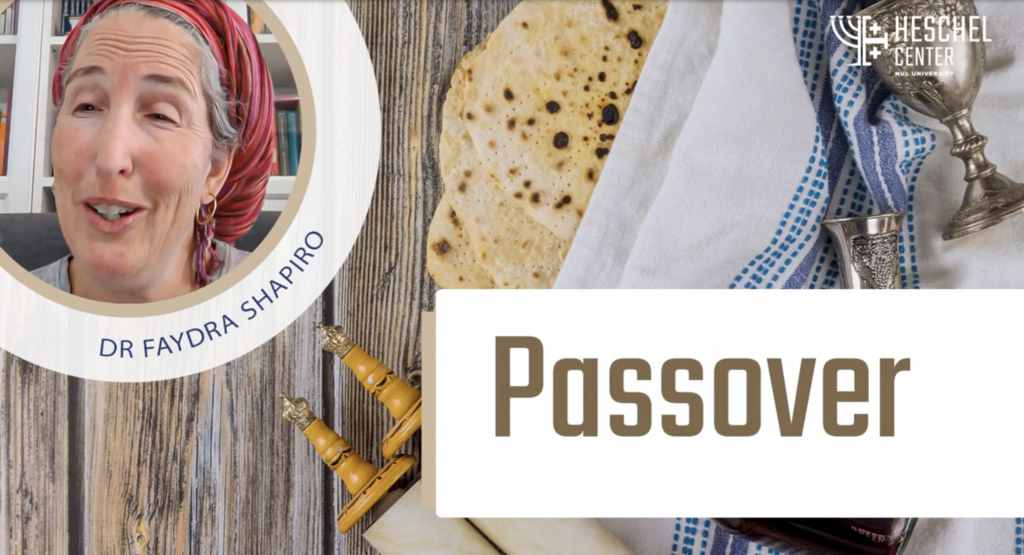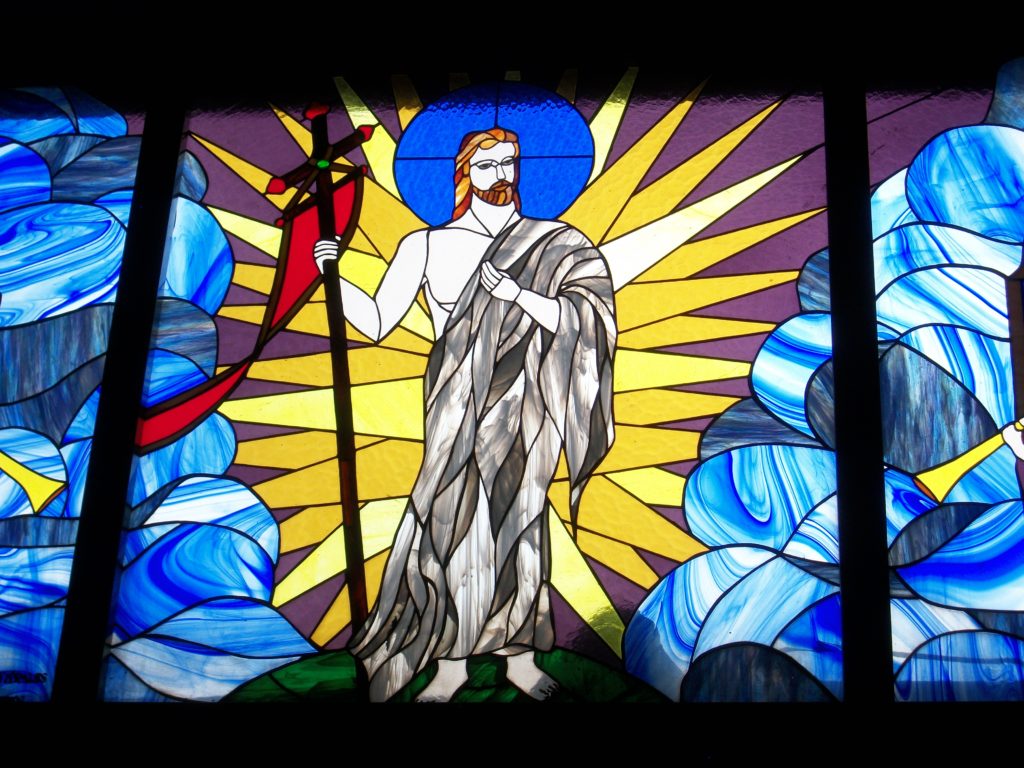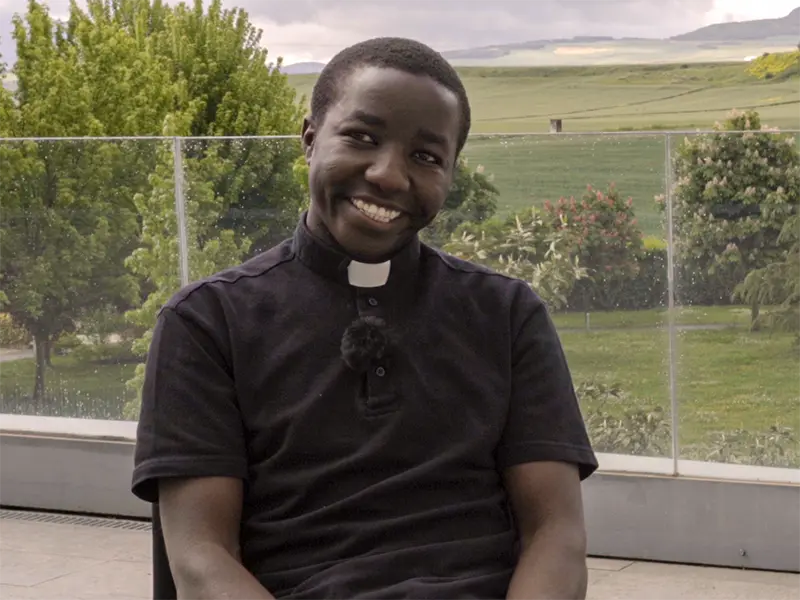Passover – the story of the first redemption
“Passover is probably the most important Jewish holiday; remembering and retelling the foundational first redemption and celebrating it is a major deal for Jews around the world,” writes Dr. Faydra Shapiro, Director of the Israeli Center for Jewish-Christian Relations, in a commentary for the Heschel Centre of the Catholic University of Lublin. Passover begins on […]

“Passover is probably the most important Jewish holiday; remembering and retelling the foundational first redemption and celebrating it is a major deal for Jews around the world,” writes Dr. Faydra Shapiro, Director of the Israeli Center for Jewish-Christian Relations, in a commentary for the Heschel Centre of the Catholic University of Lublin. Passover begins on Monday evening, April 22.
I’m confident that everyone here is familiar – even VERY familiar – with the story of the Exodus from Egypt, with God’s deliverance of the Jewish people out of slavery and oppression and into freedom. So we don’t need to go over that.
And I’m also sure you’re familiar with the biblical requirements for celebrating this event, from Deuteronomy 16, which are slightly but significantly different than the instructions that were given for the first Passover in Exodus 12.
The instructions are really quite simple. The “do not” is just “Don’t eat any leaven or have it in your possession for a week” and the “do” is only to offer and eat the Paschal sacrifice with bitter herbs and matzah. Which seems pretty straightforward. Right?
But Passover is probably the most important of the Jewish holidays, remembering and retelling the foundational first redemption, and celebrating it is a major deal for Jews around the world.
Preparations began several weeks ago, as we slowly stopped buying products with leaven, in the quest to use up the cookies, crackers, cakes, cereals and all the other leavened products that we have. We do not keep these over Passover, so opened packages get thrown out and closed packages are given away to charity. Then starts the cleaning. Making a home kosher for Passover is a major undertaking. And while some people like to also get their spring cleaning done at this time of year, there’s no need for that. The work of meticulously cleaning out the kitchen, the children’s backpacks, the car and other areas is quite enough! The whole kitchen and all dishes, pots and utensils will be cleaned, boiled, blow-torched, covered and turned over into “kosher for Passover mode” Because when God says “no leaven” He means it.
What we’re all gearing up for is the special Passover meal, held on the first night of the holiday (and also on the second night if you live outside of Israel). And when we call it a special meal it’s not because of the dishes being prepared. The meal is really a kind of pause in the action. The ritual is called a “seder”, which means “order”. Because it follows a very set ritual order, as laid out in the Haggadah, the core of which was compiled in final form around the third century but today also includes some popular medieval Passover songs. We retell the story of God’s deliverance, we remember ourselves each and every one of us being liberated from slavery, we eat symbolic foods, we ask questions, give very long answers, play games, drink four cups of wine, sing praises of thanksgiving and somewhere in there we actually do eat a meal.
This night, the first night of Passover is a special night, not only because we have the seder meal. The Bible – twice in one verse (Exodus 12:42) – refers to it as “leil shimurim” a night of watchfulness. Our sages have many different ways of understanding this, but I think my favorite comes from Rabbi Yehoshua who says that we know that the final redemption will also come at this time, because this night has been set aside, guarded and watched, since the beginning of Creation, for this very purpose. May it come speedily and in our days!
About the author:
Dr. Faydra Shapiro is a specialist in contemporary Jewish-Christian relations and is the Director of the Israel Center for Jewish-Christian Relations. She received the National Jewish Book Award for her first publication (2006). Her most recent book, with Gavin d’Costa, is Contemporary Catholic Approaches to the People, Land, and State of Israel. Dr. Shapiro is also a Senior Fellow at the Philos Project https://philosproject.org and a Research Fellow at the Center for the Study of Religions at Tel Hai College in Israel https://english.telhai.ac.il.
Related

Reflection by Bishop Enrique Díaz: Alleluia, alleluia
Enrique Díaz
20 April, 2025
5 min

Christ is Risen! Alleluia! Commentary by Fr. Jorge Miró
Jorge Miró
20 April, 2025
3 min

Easter: Mystery of Freedom
Carlos J. Gallardo
20 April, 2025
5 min

“Being Catholic in Tanzania is a source of pride”
Fundación CARF
16 April, 2025
6 min
 (EN)
(EN)
 (ES)
(ES)
 (IT)
(IT)

